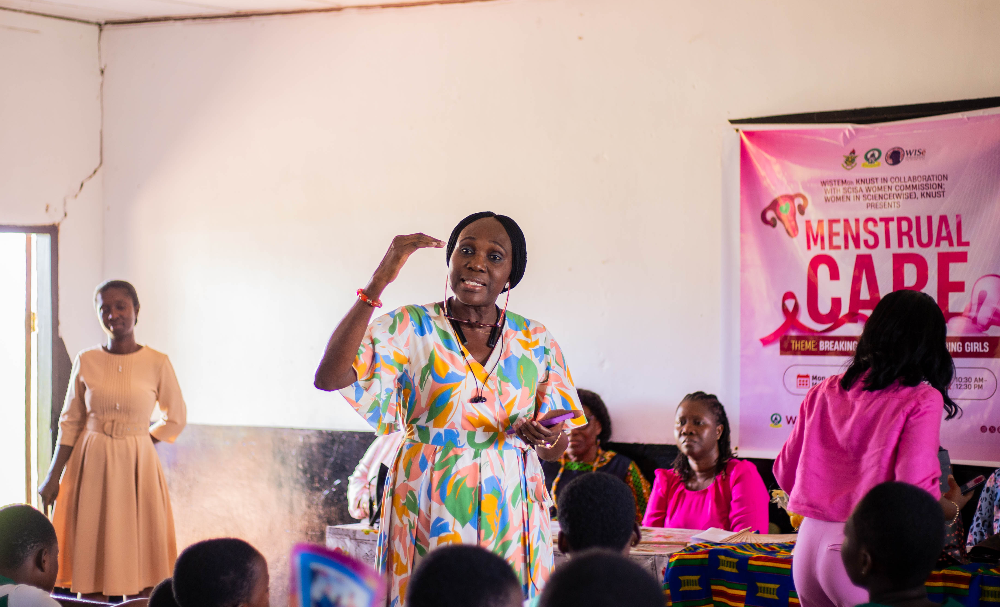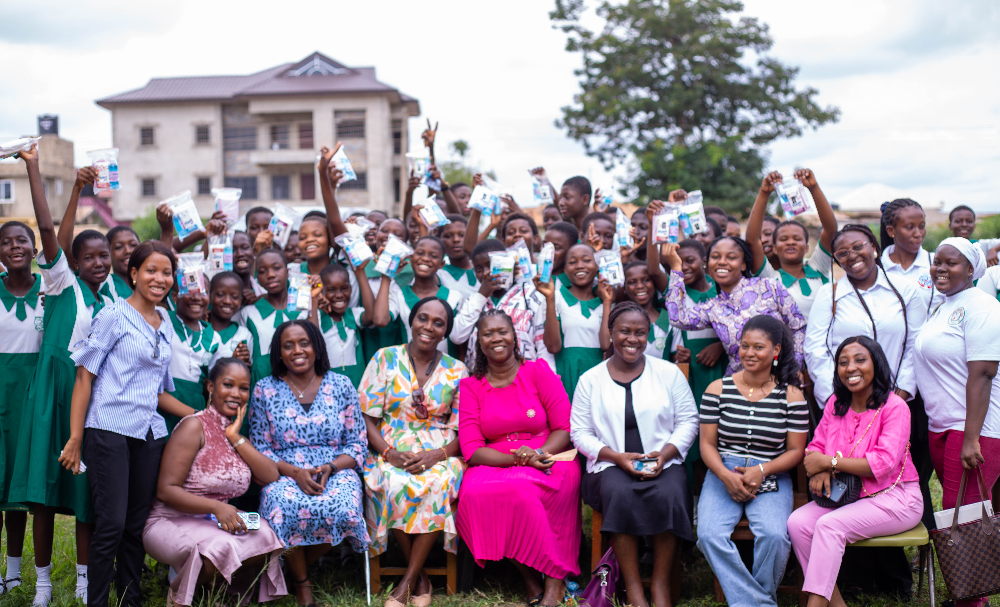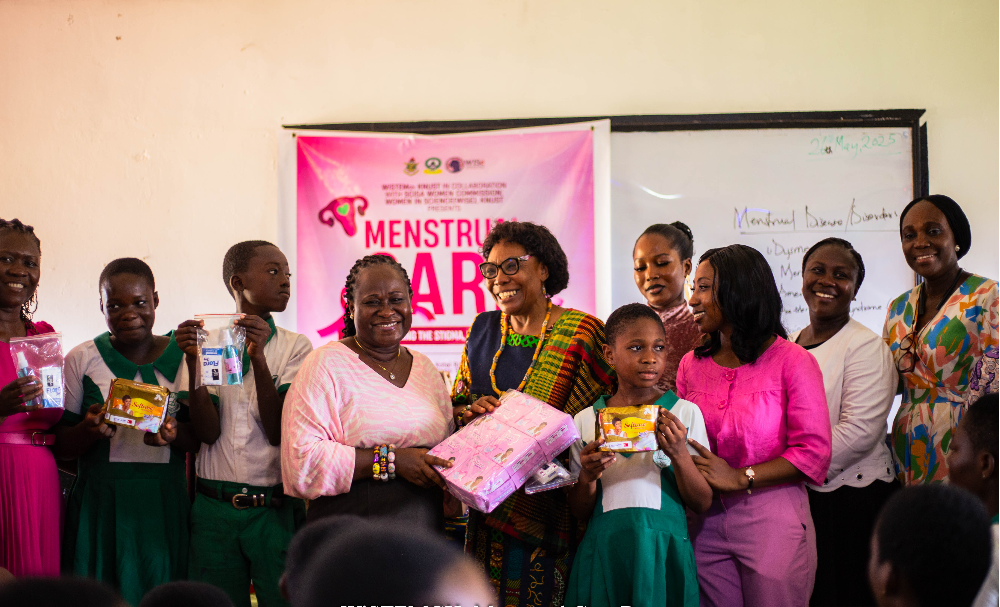Women in STEM Ghana (WiSTEMGh), in collaboration with Women in Science (WiSE) at the Kwame Nkrumah University of Science and Technology (KNUST), Kumasi has organised a menstrual care outreach programme for students of Kotei R/C Junior High School to commemorate Menstrual Hygiene Day.
Globally observed on May 28, Menstrual Hygiene Day raises awareness and promotes proper menstrual hygiene practices.
The initiative seeks to empower young girls with accurate knowledge, reduce stigma, and encourage healthier attitudes toward menstruation.
As part of the outreach, Ms. Jessica Asamoah, a Teaching Assistant at the College of Science, educated students on the science behind menstruation.
She explained that menstruation is a natural biological process regulated by the brain and the pituitary gland. Sharing her own menarche experience, she dispelled common myths and encouraged the girls to seek medical attention when faced with irregularities such as missed periods due to environmental or hormonal changes.
She also shared practical tips for maintaining good personal hygiene during menstruation.

Mrs. Bernice Serwaah Ofosuhene Peasah, a counsellor at the College of Science, addressed the psychological effects of menstruation.
She highlighted common challenges such as mood swings, anxiety, depression, and stress, reassuring the girls that these are normal experiences.
She advised them to prioritise self-care by engaging in moderate physical activity, maintaining a balanced diet with reduced sugar intake, incorporating light exercise, and ensuring adequate rest during their periods.

Emmanuella Osei Yeboah from WiSE led a session on menstrual disorders, educating participants on conditions such as dysmenorrhea (painful periods), menorrhagia (heavy bleeding), amenorrhea (absence of menstruation), premenstrual syndrome (PMS), and common vaginal infections.
Her presentation helped demystify these issues and provided useful guidance on recognising symptoms and seeking timely care.
To support menstrual hygiene, the team donated sanitary pads, tissues, and hand sanitizers to the students, ensuring they had both the knowledge and essential supplies to manage their periods with dignity and confidence.

















